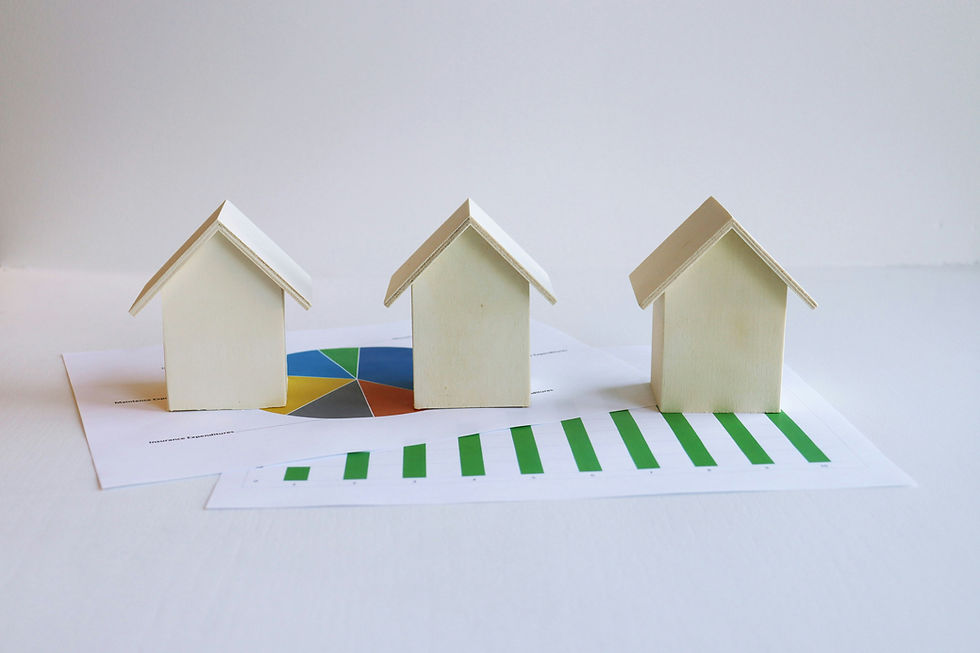Commercial Real Estate Investments & Trade Policies: Insights for Investors
- Radhika Rastogi
- Feb 5
- 3 min read
Let's discuss significant shifts in international trade and their potential impact on your real estate investments. If you've been keeping up with the news, you might have heard about new tariffs on goods from Mexico, Canada, and China. Don't be concerned if this seems complex – we'll simplify it and concentrate on what matters for your investment path.
What's Actually Happening?
Think of tariffs like an extra tax on goods coming into the US. The administration just announced some pretty big ones: 25% on most things from Mexico and Canada (except Canadian oil, which got a smaller 10% tax), and 10% on goods from China. Right now, these tariffs are on pause for a month while countries try to work out their differences, but we should understand what they might mean for us as real estate investors.
Why Should Real Estate Investors Care?
You might be wondering, "What do trade policies have to do with my real estate investments?" Actually, quite a bit! These changes can affect our investments in several interesting ways. Let's explore how.
Construction Costs Could Change
Remember when we were kids and built with wooden blocks? Well, about 30% of the wood we use in U.S. construction comes from Canada. With a 25% tariff, that wood gets more expensive, which means building and renovating properties could cost more. If you're involved in any projects where the business plan relies on property improvements or new development , you'll want to keep this in mind when evaluating the deal.
New Opportunities in Industrial Properties
Here's something exciting: Companies might need to change where they make and store their products because of these tariffs. This could mean more demand for warehouses and manufacturing buildings in the U.S. If you're investing in industrial properties through syndications (where multiple investors pool their money together), this could create some interesting opportunities.

What About Other Asset Classes?
Other asset classes such as retail, offices, and multifamily might be affected too, but in different ways. For example, if companies need to spend more money on supplies because of tariffs, they might have different needs for their office or retail space. Some might need less space to save money, while others might need more space to store extra inventory. And, as construction costs increase, the affordability gap for buyers who want to purchase their primary residence may also increase, leading to greater demand for rentals.
What Does This Mean for Your Investment Strategy?
Let's get practical about what all this means for you as a passive investor. Here are some friendly tips to consider:
Don't Put All Your Eggs in One Basket
Remember that old saying? It's especially true now. Consider investing in different types of asset classes and in different areas. This way, if tariffs affect one type of asset class or one location more than others, your overall investment portfolio stays stronger.
Look for Hidden Opportunities
Sometimes what looks like a challenge can actually be an opportunity. For example, if building new properties becomes more expensive, existing properties might become more valuable. This could be great news if you're already invested in commercial properties. A great example includes the multifamily asset class; as the affordability gap continues to widen due to higher construction costs, the demand for rentals may increase.
Keep an Eye on Inflation
When prices go up because of tariffs, real estate can actually be a good thing to own. Why? Because historically, when costs go up (inflation), real estate values and rents tend to go up too, helping protect your investment.
What Should You Do Now?
First, don't panic! These changes are still being negotiated, and whatever happens, there are always opportunities in real estate if you know where to look. Here's what you can do:
Stay informed, but don't get overwhelmed by daily news updates
Schedule a call with the Managing Team at Relik Capital Group to learn more about how we're planning for these changes and mitigating risks right from property and market identification all the way through acquisition and asset management
Look for opportunities in markets that might benefit from companies moving production to the U.S.
Looking Ahead
Remember, real estate investing is a long-term game. While these trade policies might cause some short-term changes, the fundamentals of good real estate investing stay the same: look for properties in good locations, make sure the numbers make sense, and work with trusted partners.
As a community of investors focused on building wealth through real estate, we're here to help you navigate these changes. Keep asking questions, stay curious, and remember that understanding how bigger economic changes affect our investments is part of becoming a more confident and successful investor.
Want to learn more about how these changes might affect your specific investments? Reach out to our team – we love having these conversations and helping you make informed decisions about your financial future.
Financial Planning, Passive Investing, Syndications, Financial Freedom



